DRY ROT HAS A SMELL
- does this confirm that it is the true Dry Rot fungus?
Summary: No - although
Dry Rot has a damp, earthy, rotting soil smell, so do the Wet Rots in
the right conditions. Timber is vulnerable to both Dry Rot and Wet Rots
if the moisture content is sufficient - in typical softwoods, like Pine,
the fungus needs at least 18% WME (Wood Moisture Equivalent reading
on a calibrated Meter)
to support Dry Rot, but 28% plus to support one of the many Wet Rots.
What makes more smell
- Wet or Dry Rot?
Because Dry Rot can survive
even when the moisture content is very low you cannot always smell Dry
Rot. Wet Rots, on the other hand, need such a high moisture content
to thrive that you are far more likely to be smelling them. The smell
arises from the natural decay process of the timber itself, as it breaks
down to become part of the forest floor soil. It is more obvious indoors
simply because of the trapped air under floors and behind panels - the
forest floor tends to be better ventilated than the average domestic
living room floor, where the vital air bricks are likely to be filled
with spider's webs or covered over by raised external ground levels.
Can anybody distinguish
Dry Rot by its smell alone?
Yes, the Hutton and Rostrun
Dry Rot dog certainly could! I have seen the demonstration myself and
he found a tiny piece of Dry Rot hidden in one of our Sales Girl's shoes
whilst she was walking around our Offices, when we were given a demonstration
at Remtox Chemicals by Tim Hutton himself.
To
cure Dry Rot see the products, check prices or place an Order
IT SMELLS, BUT IS IT
REALLY DRY ROT - first identify the rot type in order to decide
the extent of the treatment
1. Strands - fibres like
small plant roots, dirty off-white to silver grey in colour.
2. Sheets - Mycelium - dirty
off-white skin, can be tinged with yellow, occasionally found as billowing
cushions of off-white growths.
3. Mushroom - Fruiting Body
- this produces the Spores - rust red in colour, can spread around onto
other surfaces, usually found as a flat body with red spores in the
centre and an off-white rim.
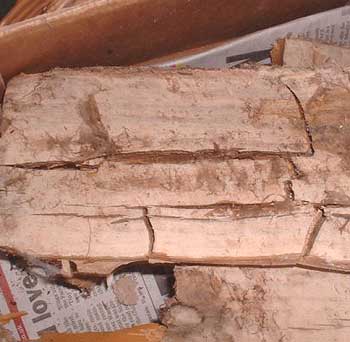
Dry Rot - large splits, curvature
and strands.
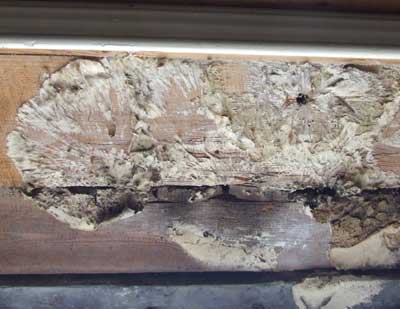
Mycellium on wood - NOT brilliant
white.
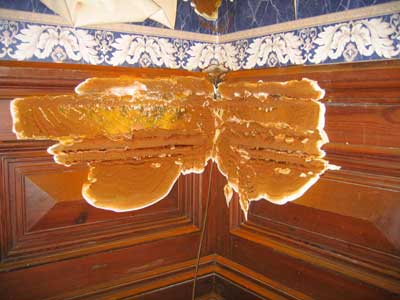
Dry Rot Sporophore - flat
& red rust coloured.
IT STILL
SMELLS, BUT ITS NOT DRY ROT - then it must be a Wet Rot -
most commonly misidentified features
1. Coniophora puteana - the
'cellar fungus' - dark brown to black strands in fern-like patterns,
olive brown fruiting body (rare).
2. Fibroporia vaillantii
- white strands in fern like growths, white fruiting body with pores.
3. Asterostroma - brilliant
white, fine strands, fruiting body has no pores, mycelium has tiny star
structures, visible only under magnification.
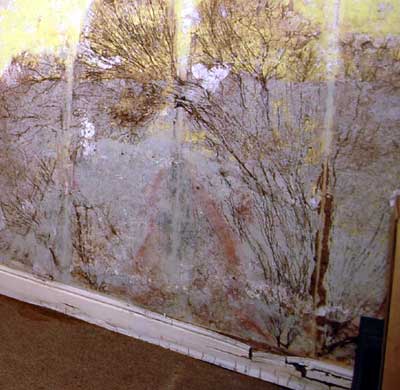
Wet rot - brown to black
strands of Coniophora.
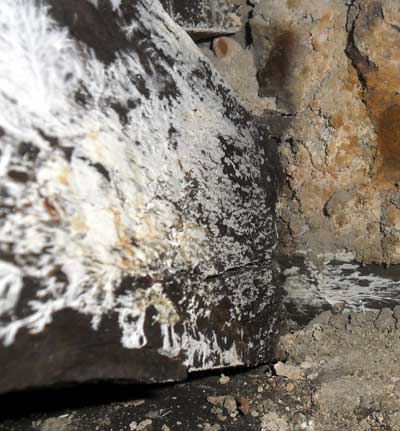
Brilliant White strands and
Mycellium of Fibroporia
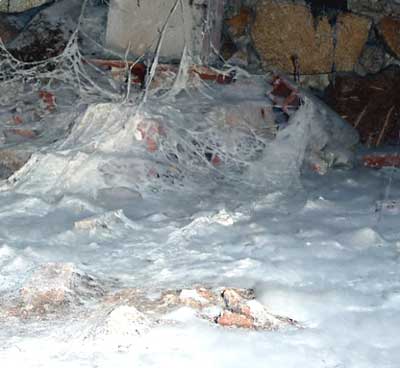
Brilliant White strands and
Mycellium of Fibroporia - both Wet Rots - NOT Dry Rot.
I HAVE
IDENTIFIED DRY ROT - how do I use Boron treatment
?
The best, safest and most
pleasant treatment to apply is Boracol 10 , a water based 'biostat' that has no adverse effect on
non-wood boring insects or mammals (like Bats). This Boron Products
is applied as two or more coats by brush or spray and soaks quickly
into the timber. It is permanent and, unlike its main rivals, it has
no vapour and no smell. It can only affect wood rotting fungi and wood
boring insects, so Bats (a protected species) are not affected - their
main food, the house fly, does not eat wood and so it never contains
any preservative. Heavily infested areas of timber, and damp patches,
should also have an application of
Boron Ultra Gel, to reduce the risks of future rot and provide extra
active ingredient. Permanently or seasonally damp wood needs injection
with Boron Ultra Paste and the
insertion of Boron Ultra Rods
(for example, window frames, garden posts, door frames).
The so called 're-entry time',
set by the HSE for every Pesticide, is only 48 hours, or until dry.
Pets, birds and fish are not at risk from Boron-based preservatives
when used as specified, but do NOT apply Permethrin based alternatives
(found in most DIY stores) if you keep any pets, particularly fish -
Permethrin is lethal to fish in minute quantities.
ADDITIONAL PRECAUTIONS
TO PREVENT THE SPREAD OF DRY ROT - Dry Rot Paint around and over timbers
The photograph below shows
untreated panels, on the left and treated panels on the right. The treated
panels (in two columns) have been painted with Dry Rot Paint and show
no signs of growth!
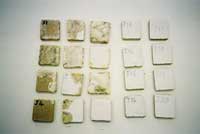
So, you can further reduce
the risk of future Dry Rot attack by using this 'No Go Zone' special
emulsion paint. It can be applied behind skirting boards, in window
frame reveals and in joist sockets. The paint, which has been tested
by BRE (Building Research Establishment - Government backed test Authority)
prevents Dry Rot from passing across treated areas. No other treatment
can currently offer this feature.
If you need any help with
any type of Wood Treatment or identification of wood rotting fungi Property
Repair Systems staff will be pleased to give you completely free, no
obligation advice on 01626 872886 .
RING US FOR HELP TO IDENTIFY
YOUR FUNGUS - 01626 872886 - Fungus Help Line
BORON
GEL, PASTE, RODS - treatment to kill and prevent insect and Dry Rot
attack
1. ECOBOR ULTRA GEL -
Surface Applied Gel for Dry Rot
An active clear Boron based
Gel ideal for end grain and bearing area treatment of beams and joists.
Apply to surfaces that have been touched by or affected by Dry Rot.
Also useful for medium to
heavy active infestations of insect attack and treatment of new timbers
for use in vulnerable areas (e.g. skirting boards).
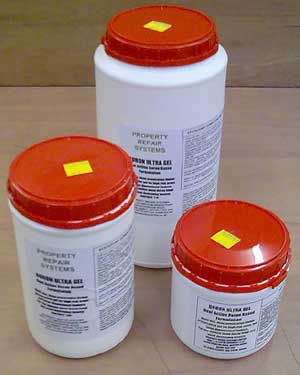
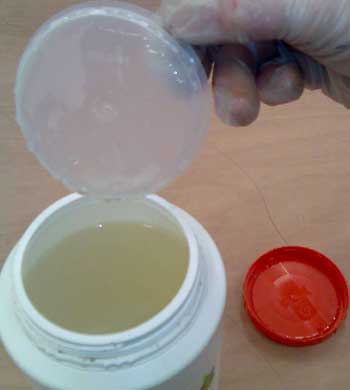
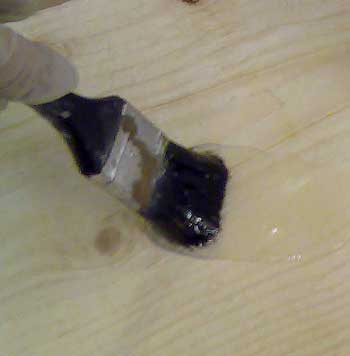
Boron Ultra Gel in three
sizes - 500cc, 1 litre and 2 litres - no odour, easy to brush.
Click
here to see Prices or Buy
2. BORON ULTRA PASTE -
Deep Injected Treatment for Dry Rot - no odour
A unique Boron based paste
using a special blend of technical grade glycols as carriers. It can
be injected into timber, with the advantage of supplying a highly concentrated
mobile preservative which will spread even at low moisture content levels.
Simple to apply with a standard skeleton gun; more effective to use
because of the higher available level of active content, which allows
the use of smaller (8mm, rather than 10mm) and/or fewer drill holes.
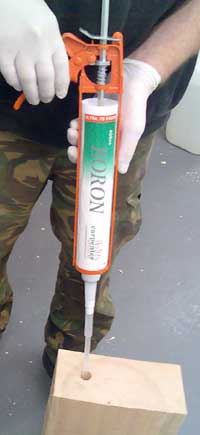
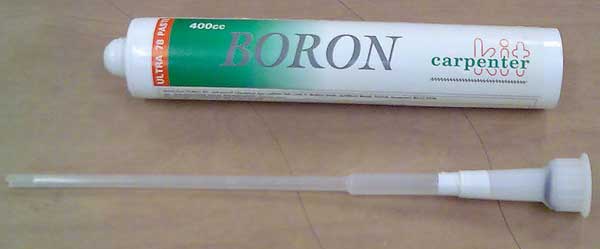
Boron Paste in a mastic tube,
with an extension adapter nozzle. For injection into wood to kill dry
rot and insects.
Also available - Timber
Paste for dry wood - ideal for fully indoor structural timbers that
are suffering from Death Watch Beetle, House Longhorn Beetle or Termites.
Click
here to see Prices or Buy
3. BORON RODS - Solid
Rods for embedding Boron inside holes in wood - prevents and kills Dry
Rot
These solid rods of Boron
based compound are used to protect timbers which are constantly or occasionally
damp: external joinery, wall plates, embedded beam ends, posts etc.
They can also be used in conjunction with BORON ULTRA Paste, to act
as a long term reservoir (Standard Sizes - 8mm x 24mm and 8mm x 65mm).
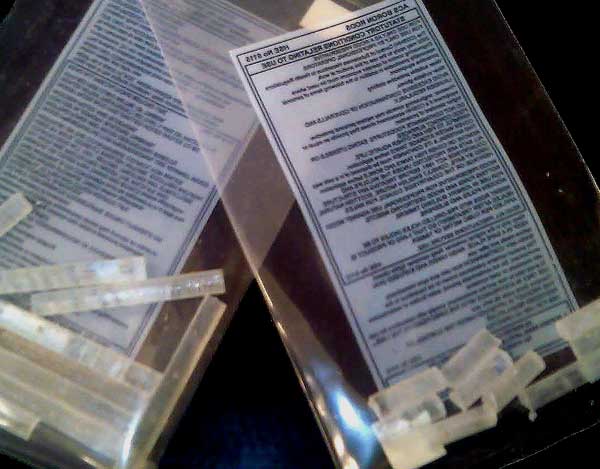
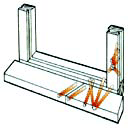
Packets of Boron Rods as
solid fused sticks of preservative. Example of insertion in a frame.
Click
here to see Prices or Buy
4. DRY ROT PAINT - Special
Emulsion Coating - low odour (non Boron)
A specially treated preservative
biocidal emulsion paint designed to prevent the surface spread of Dry
rot. Ideal for timber and masonry in the treatment of adjacent areas,
to provide visual lasting evidence of treatment. It prevents surface
spread of strands and mycelium.
Some Site photographs showing
how Dry Rot can spread - often in hidden places below or between floors.
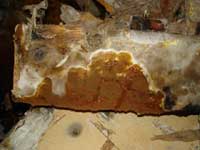 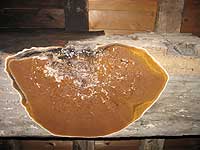

Click
here to see Prices or Buy
Benefits of Borax
Boron based for Dry Rot treatments
* Boron has a world-wide
safety reputation - 5% products still require no hazard warnings
* Borates have ultra low
toxicity - about the same as Table Salt
* Boron based preservative
kills only wood rots and wood boring insects - not spiders, birds or
bats
* Boron has no odour - leaves
no smell
* Borax does not evaporate
- stays in the wood
* Borons are non-flammable
- they actually act as Flame Retardants
Click
here to see Prices or Buy
Technical Support
for Dry Rot
All PRS products are supported
with Method Statements, Specifications and comprehensive technical support.
Please ask for our technical department. Contact us aT: 01626 872886 or help@propertyrepairsystems.co.uk
Certificate
of Product Guarantee for
Dry Rot
We offer
a printed Certificate of Product Guarantee for individual properties,
should you require one for your Bank, Building Society or house purchaser.
Call us for
details on 01626 872886 .
Safety
for
Dry Rot Treatment
See our Dry
Rot Technical Information page for Product Safety Information. The Boron
based product, Boracol 10 , used for Dry Rot Treatment diluted in
water at 5% or 10% BAE is fully Licensed by the HSE and the 5% version
is not required to carry any hazard warning labels.
Click
to go to Dry Rot Technical Information.
Links
to our other Web Sites | Privacy Policy
Returns
Policy | Technical & Safety |
Contact
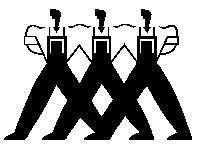
Property
Repair Systems,
T: 01626 872886
E: help@propertyrepairsystems.co.uk
Site written by: David
Moore
David Moore, B.A. (Hons.),
C.T.I.S., C.R.D.S. Technical Author
Google+
|